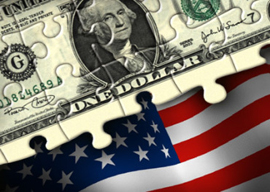
February 01, 2011

What America was to the world in 1950, General Motors was to the nation.
It was the largest and most successful company with the largest number of employees. It paid the highest wages and contributed more in taxes than any other company. During World War II, no company had contributed more to the Arsenal of Democracy and America’s victory.
As one wag said, “For every shell Krupp threw at us, GM threw back four.” The cars GM built—Cadillac, Oldsmobile, Chevrolet, Buick and Pontiac—were the best in their class. But in the second half of the 20th century, something happened.
General Motors’ executives repeatedly caved in to United Autoworkers’ demands for wages, health benefits and pensions the company could not afford over the long term. Small and inexpensive foreign cars were allowed into the U.S. market and, as their quality improved, began to flood the U.S. market.
GM executives failed to see what was happening, and if they saw it, to act upon the new reality. Thus, at the end of the last decade, the U.S. government acted.
The company was taken into receivership. Shareholders and bondholders of GM were wiped out. Hundreds of GM dealerships closed. Now, a new GM has come out of bankruptcy to takes its place as one of a dozen major auto companies in the United States and the world.
“What the White House is about may be smart short-term politics, but it is the antithesis of leadership.”
The failure of GM was a failure of leadership. Executives lacked the vision to see the challenges coming. They lacked the courage to resist the demands of union bosses. They lacked the decisiveness to act, when sacrifices were clearly required.
In his State of the Union address, President Obama called this America’s “sputnik moment,” like that October day in 1957 when we suddenly awoke to the reality that those backward Russians with their communist system had beaten America into space.
But listening to the president speak Tuesday night, one came away with a distinct impression. Either Obama does not believe this country is careening toward a fiscal and financial crisis, or he refuses to pay the political price of imposing the sacrifices needed to lead the country back from the brink.
The day after the president spoke, the Congressional Budget Office estimated the deficit this fiscal year at $1.5 trillion, largest in peacetime history and 10 percent of the entire U.S. economy. Almost 40 percent of the budget will be financed this year by borrowing from our own citizens and foreign countries, China foremost among them.